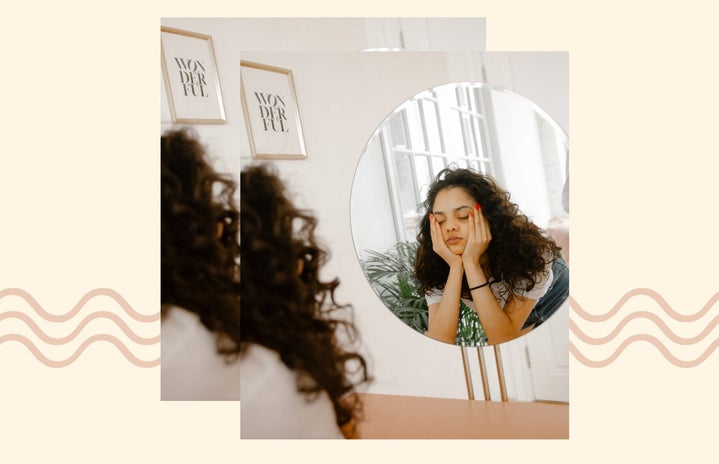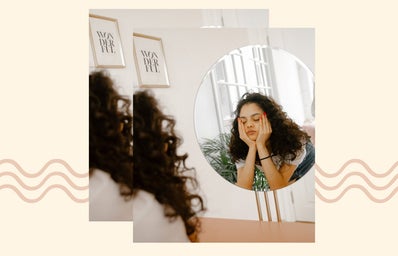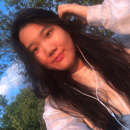Pale skin, large eyes, double-eyelids, high nose, small face, pointy chin, clear skin, narrow jaw…
This is what it means to be pretty in South Korea. While North American standards of beauty are increasingly being challenged, the “How to Be Pretty” manual in Korea remains largely predictable and rigid. There’s even a slang term used to denote status in those with the “best” looks: Ulzzang —which literally translates to “best face.” Asia’s fixation on one archetype of beauty can bear destructive consequences. But that’s a different continent and we’re out of reach, half-a-world away, right? For many Asian-Canadians, the answer is no. Such strict beauty standards have permeated our experience, carrying over through travel, media, family, or our community. For me, only in retrospect can I fully see how Korean beauty standards have and continue to affect my life.
My family immigrated to Canada shortly after I was born and lived in a predominantly White suburb just outside of Toronto. Despite being the only Korean family around, our household preserved a lot of the culture — we spoke the language, always ate miyeok-guk (Korean seaweed soup) on birthdays, watched Korean variety shows together, and kept up with the latest Hallyu stars. I couldn’t realize it then, but in a Eurocentric society where the benchmark of beauty was having blonde-hair and blue-eyes, following Korean celebrities provided me with an alternative to the standards that I inherently could not conform to. So, I internalized a different and, in my eyes, more “achievable” definition of beauty.
I vividly remember explaining to my elementary school friends the concept of a double eyelid, or ssanggapul as it is called in Korean. This simple detail is so sought after that a blepharoplasty (double eyelid surgery), or ssangsu, is the most popular cosmetic surgery procedure in South Korea. I realize now that for my friends, the term “double eyelid” might as well have been a foreign language, yet at just 8 years old, it had taken a permanent place in my vocabulary.
In our small community of other Korean immigrant families, comments about appearance and body weight replaced words of greeting. Wow, you’re so tall. Did you lose weight? You should eat less. You must weigh a lot! You’ve gotten prettier! People were never shy about voicing their opinions and why would they be? Beauty ideals in Korea are so homogenized that such judgements are told as facts.
With such a strong emphasis placed onto physical beauty, I eventually reasoned it to be synonymous with value. During middle school, I quickly realized that my definition of beauty clashed with that of my peers. Any compliments I received were heard as taunts. I was convinced that people were playing a cruel joke on me:
I’m so jealous of your tan! I spent the rest of that summer hiding from the sun at all costs.
It must be so nice to be tall! I started slouching or leaning my weight onto one leg. You can’t be too short, but you also can’t be too tall.
You have such high cheekbones! I googled: “How to get a naturally plump face,” wanting to achieve that youthful “baby-face” look that’s adored in Korea.
My grim reaction to their well-meaning remarks was always met with confusion; they weren’t familiar with the “rules” and didn’t understand that I was only trying to follow them.
Flash forward to my adolescence when Disney announced the cast of their upcoming live remake of Mulan. I found a picture of Liu Yifei, excited that a Chinese actress had been casted to play the Chinese lead heroine. My Chinese-Canadian friend and I were giddily discussing the thought of seeing an Asian actress in an American film, when she casually said, “She doesn’t have monolids, but we’ll get there someday.” The moment was brief, but it was the first time I had heard anyone challenge East Asian beauty standards out loud. It’s true, I realized, monolids are beautiful too, so why do I never see them on-screen? It was the first time I thought perhaps the invisible rules living in my head existed for others too. And perhaps they could be undone.
When thinking about beauty standards, the word “ego-syntonic” comes to mind. An ego-syntonic behaviour is one that we view to be acceptable and consistent with our fundamental beliefs; even when well-aware of the harm, we can’t help but want to continue. It makes sense that we still hold ourselves to destructive beauty standards— who wouldn’t want to be beautiful in a society where beauty is equivalent to worth? There’s no one-off switch to unsubscribe from such deeply engrained expectations— aunties and uncles will still ask my weight or fuss over my height and I can’t simply rewrite the conventions of an entire culture overnight. So yes, it may be impossible to ignore cultural beauty standards. Instead of becoming invincible, my goal is to be resilient.
As a child, I couldn’t control my consumption of beauty ideals, but it was growing up silent that solidified them into rules. Once I began starting conversations like my friend had that day, it became easier to see that there is more wrong with the system than there is with me.
For anyone who needs to hear it, it’s okay to seek support and affirmation from your friends. Sometimes we need to hear it from someone else before using our own voice to echo and manifest those thoughts into reality. I wish I could say that since learning this, like magic, I’ve now become perfectly indifferent to how any beauty standard dictates I should look. Sometimes, I still habitually pinch the bridge of my nose, search for the lowest-platform shoes, and stress about the summer sun. But that’s okay, because it’s a work in progress. It takes practice and practice takes time, so be patient and kind to yourself. I’m not suddenly the most confident person, but now that I can think to myself: why should I be afraid of a tan? and finally enjoy summer, I certainly am a happier one.


